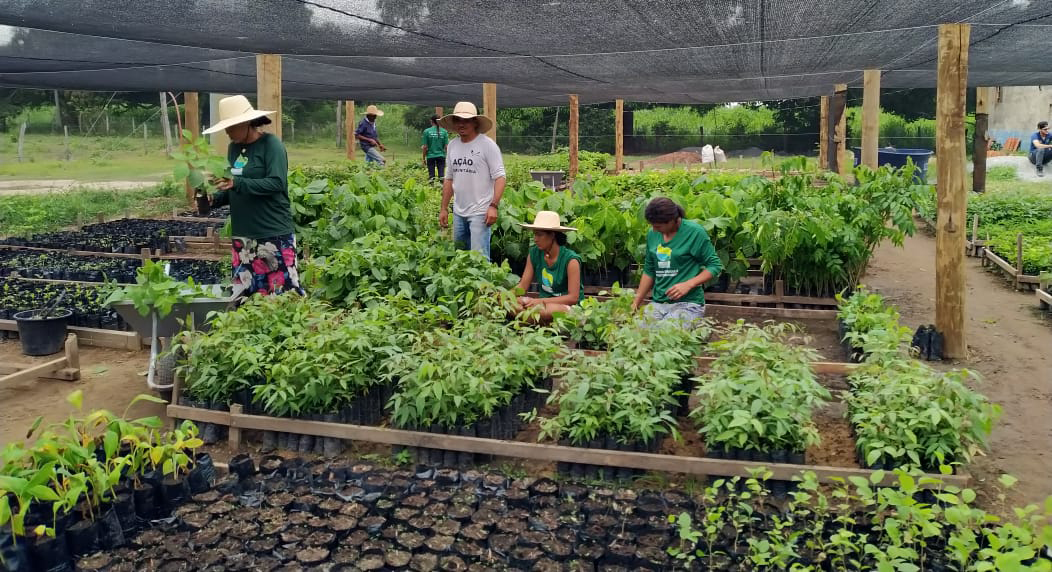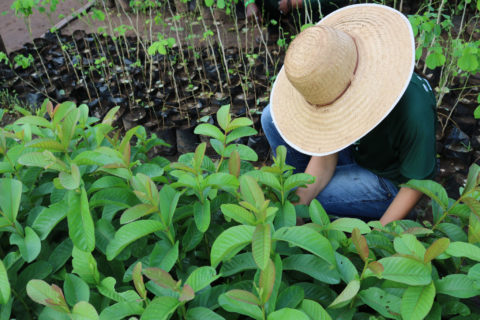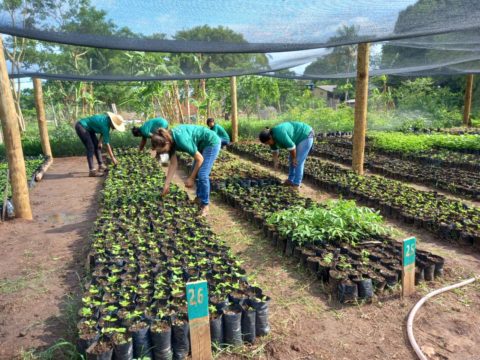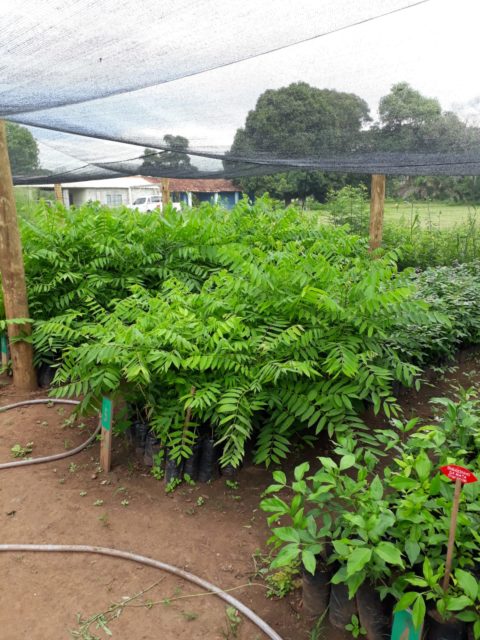
Communities get recognition for their support in the Pantanal restoration with a total of 40,000 cultivated trees
-
Ríos y lagos
Traditional communities located in the municipalities of Poconé and Barão de Melgaço, in the Pantanal of Mato Grosso, have got the Certificate of Recognition for their commitment to restoring the biome, through the cultivation of Pantanal native seedlings in nurseries. With the certification, the first large-scale acquisition was also consolidated, with 40 thousand seedlings, to be planted in the largest Private Natural Heritage Reserve in Brazil, the RPPN Sesc Pantanal. Also, to be distributed to residents of degraded areas on the banks of the Cuiabá River, such as farmers and riverside communities.

The title was given to the associations of Capão do Angico (Poconé) and São Pedro de Joselandia (Barão de Melgaço), by the three institutions that represent the project partners: the Sesc Pantanal Socio-Environmental Unit and the NGOs Women in Action in the Pantanal(Mupan ) and Wetlands International. The two communities are part of the pioneering project “Network of Seedlings and Pantanal Seeds – Aquarela Watercolor”, which includes the three pillars of sustainability: social, environmental, and economic.
Families benefit from a grant by contributing to the biome, supplying a large-scale of native seedlings to the wetlands. That allows them the opportunity to work in the nurseries during the initial 10 months of the project. With the resources of the first major acquisition of the carrying out institutions, the nursery workers and associations involved in the project make plans.
Miriam Amorim is a resident of São Pedro de Joselândia and also a participant in the project. She says that the association will define how they apply the amount received from the sale of the seedlings. She adds that the renovation of the headquarters and the purchase of a vehicle, which is essential for the Comunity Brigade in the dry season, are among the main needs.
Her part, referring to this first sale, is going to pay for her graduation in Environmental Management. But the project represents much more than the financial return. “Aquarela Pantanal is a door for the future, that has opened to me, my children, and my community. So I want to dedicate myself more and more to it. We never thought about the destruction of the Pantanal and the project has opened our eyes to this. It shows us the importance of conserving and caring for it. As we are a Pantanal community, we should have this knowledge from our cradle. But we hope to see our children and grandchildren with this awareness”, she says.

In Capão do Angico, the nursery workers will use the grant to help with household expenses such as food, payment of debts, and even the purchase of a new bicycle. “A lot has changed since the beginning of the project and today we are able to show to the entire community that all the work we had done was worth it. One of the fellows, for example, started graduation, while another can help her family of five children. In other words, this resource is very significant for the realization of these dreams”, Rita de Cássia Lemes de Oliveira, the participant highlights. The association will also receive a portion of the amount and use it to pay debts.

Project for the future
According to the superintendent of the Sesc Pantanal Socio-Environmental Unit, Christiane Caetano, this is just the first stage of the Aquarela Pantanal initiative, a social business that began at a historic moment in the biome, that has great potential for development. “Because of it, it is possible to keep many people in a productive network, increasing the participation of families. The project has just begun and this recognition is an incentive. Our work doesn´t aim only at the present moment, but at the future as well. It´s collectively carried out. Today, we are the facilitators of the project and the community is the main protagonist of this work and of its own trajectory”, she adds.
For the director of Mupan, and policy coordinator of Wetlands International Brazil, Áurea Garcia, the collective work is one of the great highlights of the Initiative. “The big difference is to bring researchers, RPPN managers, municipalities, civil society organizations, and communities into the initiative.” A pioneering initiative for dealing with an extremely specific and complex methodology, in an accessible, applicable and scalable way that generates income for communities –as it raises awareness and protects wetlands. The initiative is enabling us to learn more about the dynamics of post-fire Pantanal wetlands and what is needed for their conservation. Women have a leading role in being at the forefront of research, management, planning, and execution.
Rafaela Nicola, director of Wetlands International, highlights the alignment of the three pillars of sustainability in the project. “We got all the communities around the RPPN Sesc Pantanal involved, in order to restore the biome, especially after the fires of 2020, which, in addition to collaborating with the territory where they are, also benefited them economically. It is the perfect cycle and it has been fulfilled”, she declares.
Aquarela Pantanal is a partnership of the Sesc Pantanal Socio-Environmental Unit, Women in Action in the Pantanal (Mupan), Wetlands International, Pantanal Research Center (CPP), National Institute of Science and Technology of Wetlands (INAU), with funding from the Fund for the Environment (GEF) through the Project Strategies for Conservation, Recovery, and Management for the Biodiversity of the Caatinga, Pampa and Pantanal (GEF Terrestrial), coordinated by the Ministry of the Environment (MMA), with the Inter-American Development Bank agencies (BID) as an implementer and the Brazilian Biodiversity Fund (FUNBIO) as the executor, in addition to contemplating the work carried out by the Corredor Azul Programme of Wetlands International, with funding from DOB Ecology.
By Sesc Pantanal
